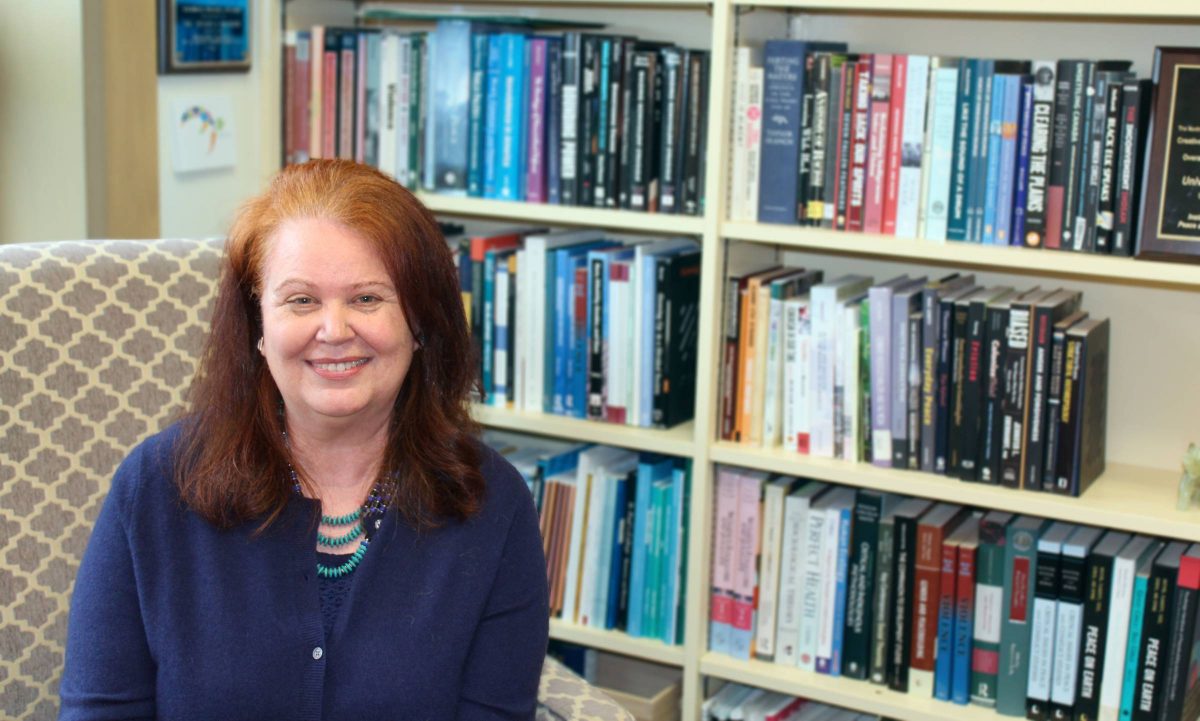
Dr. Jessica Senehi appointed as the new Director of Peace and Conflict Studies at UM.
UM appoints a New Director of Peace and Conflict Studies
We recently sat down with the newly appointed director of peace and conflict studies (PACS), Dr. Jessica Senehi, to discuss her vision and goals for the program. With a strong background in teaching, research, and outreach, she is set to lead the PACS program into a new era of growth and positive impact.
A Vision for Collaboration and Excellence
Dr. Senehi shared her desire for continuing the collaboration and excellence of the PACS program at UM, highlighting the program’s collaborative environment as a key motivation for accepting the position. “The Faculty of Graduate Studies—with leadership from the Arthur V. Mauro Institue Institute at St. Paul’s College and in partnership with the University of Winnipeg—has created an amazing space for students and faculty who are seeking to address some of society’s most pressing questions. I look forward to working with the amazing team of faculty, students, and staff who are involved in the peace and conflict studies programs,” she stated. Over the years, more than 100 UM and adjunct faculty have participated on student advisory committees or PACS governing committees.
Building on Success and Looking Forward
Building on past successes and enhancing the programs’ global impact, Dr. Senehi said “I hope to continue to build on the previous success of PACS. For example, the 55 PACS PhD alumni who have graduated since 2011 have produced numerous books and hold positions in universities or organizations throughout the world. Their publications have more than 6,000 citations. I hope to help bring awareness to the work that is being done in PACS at UM.” With the 20th anniversary of the PACS Program approaching in January 2026, Dr. Senehi envisions this milestone as an opportunity for the community to come together, celebrate, and share ideas.
Innovative Research and Teaching
PACS faculty work closely with students on research and scholarship. “Over the past few years, I was part of a project that was developed by students in one of my classes. Several PACS graduate students and I co-edited a volume on Culture, Conflict, and Peacebuilding that includes chapters by several PACS alumni and students. The volume is currently in press with Palgrave Macmillan, and we are hoping that it will be used as a teaching text,” she said. This project exemplifies the integrative and student-centered approach that she plans to continue fostering within the program.
Strengthening Community Partnerships
A key aspect of Dr. Senehi’s vision involves strengthening community partnerships and engaging with local organizations. “PACS students are dedicated to working with and learning from communities and community organizations. There is often a focus on Indigenous, cultural, and local resources for peace-building. Many PACS master’s students have done practica with numerous local organizations. It will be important to recognize, strengthen, and build on these partnerships.”
Inspiring Future Leaders in Peace and Conflict Resolution
Dr. Senehi offers valuable advice to students aspiring to work in peace and conflict resolution. “I often say that the graduate student is on a heroic quest to find something valuable through their research that will address a problem or provide new knowledge. Students hope their research will make a positive impact on society. What I have found is that through their graduate journey, students become an agents of positive change in the world through their life’s work.”
A Welcoming and Diverse Community
Highlighting the inclusive and supportive environment of the PACS program, Dr. Senehi recognizes the importance of interdisciplinary collaboration by stating. “Importantly, graduate students find many allies on their quest—among faculty, staff, and, importantly, student colleagues. PACS is an interdisciplinary program, and people come to their studies from a range of educational, professional, geographic, and cultural backgrounds. They share a dedication to creating a better world, characterized by human rights, social justice, and positive peace. This creates an exciting and generative milieu for learning, research, and building life-long relationships.”
Dr. Kelley Main, dean of the faculty of graduate studies where the PACS program is housed shared “We are thrilled to have Dr. Senehi assume the position as the director of peace and conflict studies. Her extensive dedication in the field brings a wealth of experience and a deep commitment to the field of peace and conflict studies, and her knowledge and leadership will bring new insights and energy to the program, while strengthening and building on the partnerships already in place.”
As the new director steps into her role, the University of Manitoba’s PACS program is poised for a bright future, driven by a shared commitment to excellence and innovation.






